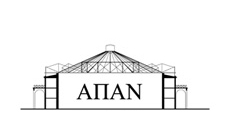M. Koromila,Mistras. Second program, 1218-1259.
[Audio-Visual]
Title
M. Koromila,Mistras. Second program, 1218-1259.
Subtitle
"He found an odd-shaped hill-top, an outlyer of the mountain,
And built on it a magnificent castle, and a mighty stronghold".
And built on it a magnificent castle, and a mighty stronghold".
Type
Audio
Classification
Classification
Radio Broadcast.
©:
Μ. Κορομηλά
Production date
20/3/1989
Languages
Greek
Duration
57΄06΄΄
Subject / Synopsis / Locations
Second in a series of five hour-long radio broadcasts about the historical development of the fortified city of Mistra from its foundation by the Franks in 13th century and its surrender in 1262 to Emperor Michael VIII Palaiologos to the 20th century when Mistra’s last inhabitants resettled in newly-built Sparta and the town-fortress – which had been used as a quarry for building materials – was converted into an archaeological site. In the second program, after a brief introduction and bridge from the previous program, we trace developments in Lakonia under Geoffrey II Villehardouin, 1218-1246, and Guillaume Villehardouin, 1245-1278. It was Guillaume (known as “missir Yuliamos” to the Greeks) who founded the fortress at Mistra on an uninhabited conical hill overlooking the pass leading from Mount Taygetos into the Eurotas Valley where the Villehardouin family had built their palace, “La Cremonie”, on the west bank of the Eurotas. Work on Mistra was completed in 1249. Meanwhile, Guillaume Villehardouin had taken the fortress-town of Monemvasia after a protracted siege.
The program goes on to describe life in Morea , especially in the time of Guillaume, noting the economic and social factors which characterized it, including cultivation of the vine, olive and mulberry tree, silk production, and the establishment of a mint at Andreville / Andravida, which was the seat of the Principate of Achaea in the prefecture of Elis). Mention is made of the fortresses of Glarenza and Chlemoutsi, and the Venetian merchants in the western and southwestern Peloponnese.
The program’s second part is dedicated to the battle waged in 1259 by Michael II Angelodoukas Komnenos, despot of Epiros and father in law of Guillaume Villehardouin, together with their allies, against the Palaiologans of the Empire of Nicaea. On campaign with Michael was Guillaume, who was married to Anna Angelodoukaina Komnene, Michael’s daughter. The battle was fought out on the plain of Pelagonia (in the Former Yugoslav Republic of Macedonia) and resulted in the capture of the cream of the Frankish knights. Included among those taken prisoner was Guillaume Villehardouin. As ransom for the prisoners, Michael VIII Palaiologos asked for no less than the surrender of the entire Principate of Achaea. The program ends with the knights still in captivity. Passages from the Chronicle of Morea and Steven Runciman’s Mistra are read aloud, as well as satirical “poetic improvisations” written by MK especially for these programs. Music both accompanies and frames the spoken word.
The program goes on to describe life in Morea , especially in the time of Guillaume, noting the economic and social factors which characterized it, including cultivation of the vine, olive and mulberry tree, silk production, and the establishment of a mint at Andreville / Andravida, which was the seat of the Principate of Achaea in the prefecture of Elis). Mention is made of the fortresses of Glarenza and Chlemoutsi, and the Venetian merchants in the western and southwestern Peloponnese.
The program’s second part is dedicated to the battle waged in 1259 by Michael II Angelodoukas Komnenos, despot of Epiros and father in law of Guillaume Villehardouin, together with their allies, against the Palaiologans of the Empire of Nicaea. On campaign with Michael was Guillaume, who was married to Anna Angelodoukaina Komnene, Michael’s daughter. The battle was fought out on the plain of Pelagonia (in the Former Yugoslav Republic of Macedonia) and resulted in the capture of the cream of the Frankish knights. Included among those taken prisoner was Guillaume Villehardouin. As ransom for the prisoners, Michael VIII Palaiologos asked for no less than the surrender of the entire Principate of Achaea. The program ends with the knights still in captivity. Passages from the Chronicle of Morea and Steven Runciman’s Mistra are read aloud, as well as satirical “poetic improvisations” written by MK especially for these programs. Music both accompanies and frames the spoken word.
Producer / Production
Marianna Koromila
Research / Scientific supervision
Marianna Koromila
Texts
Marianna Koromila
Musical selection
M. Koromila
Speaker / Narrator
Marianna Koromila
Other features
Recording technician Christina Skantzika
Digital processing for APAN Marina Kokori
Digital processing for APAN Marina Kokori
Key words
Agrarian economy.
Albanians.
Anna Angeloducaena Comnena /Anna Angelodoukaina Komnene.
Balkans.
Battle of Pelagonia.
Byzantine nobility / noblemen.
Chronicle of Morea.
Despotate of Epirus.
Early Frankish rule.
Elis / Eleia.
Empire of Nicaea.
Eurotas, river.
Feudal society.
Frankish mint.
Frankish rule / Latin rule.
FYROM / Former Yugoslav Republic of Macedonia.
Gasmoulos / Gasmouloi.
Geoffrey II of Villehardouin.
Greece.
Guillaume of Villehardouin.
Laconia / Lakonia.
Latin Occupation.
Mistra / Mystras.
Monemvasia.
Olive tree.
Palaeologan age / Palaiologan age.
Palaeologans / Palaiologans.
Parnon, mountain.
Peloponnese.
Peloponnese, landscape.
Principate of Achaea.
Sericulture.
Taygetos, mountain.
Venetians.
Villehardouin family.
Viticulture.

